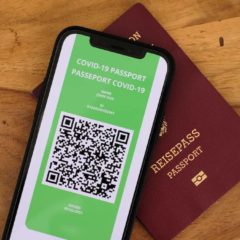A good credit history in the United States is, perhaps, an integral part of a prosperous life in this country, both for US citizens and immigrants. If you are planning to move to the United States, your finances will get a fresh start. It should be borne in mind that immigrants who do not have a credit history in the States may find it difficult to solve the most basic issues. For example, such as renting an apartment, buying a car, and even getting a tariff plan on the phone. Therefore, it is better to create a credit history before making large purchases.
Many people think that having excellent credit history in their home country can transfer it to the United States. But this is a big mistake. Since US credit reports contain information only about US creditors. And only a few of them will want to use your previous loan. But you should not rely heavily on this.

Credit rating in the USA
Let’s take a closer look at what a credit rating is in the United States. Most people require a loan to buy a house, a car, or to make any large purchases. But credit is provided even for a mobile tariff plan. Lenders who give you money to buy a car or give you a loan for phone calls want to know that funds will be paid back on time. Hence, building a credit history is simply building a positive payment history.
Credit bureaus develop a special document for each person that shows what bills you have, how much you owe, and whether you pay bills on time. They convert this information into an easy-to-read number – a credit score. For understanding, a credit rating is in the range of 300 to 850, with 700 or higher is generally considered good.
What’s worse than a bad credit rating or no credit rating?
A bad credit rating is very different from a no credit rating. In some cases, lenders may provide loans to immigrants without a credit history. If you don’t have a credit history, lenders don’t have any information. But with a bad rating, no one will definitely want to give you a loan. It can take many years to fix a bad story.
Good credit history in the USA. How to create it?
Immigrants have the opportunity to get a loan within a few months, provided they create a positive story. Patience is needed in this matter.
Во-первых, необходимо подать заявку на получение номера социального страхования
The Social Security Number, or SSN, is a unique, nine-digit code. This code is assigned to Americans to track income and benefits. It is issued by the Social Security Administration. You usually need an SSN to get a job, get Social Security benefits, and access some other government services. Banks and credit card companies may also ask for your SSN when applying for a new credit card. It helps them understand that you are who you say you are.
In most cases, only immigrants who have permission to work in the United States can obtain a Social Security number. If you are not eligible for an SSN, you can request an Individual Taxpayer Identification Number (ITIN). ITIN may replace SSN until you receive one.
Then – open a credit card
Since you currently have little or no credit history, it will be difficult or impossible to open a standard line of credit. You may be eligible for a credit card from CreditStacks – designed for professionals who have recently moved to the United States. However, banks and other lenders usually consider you a risky candidate simply because they don’t know anything about you. You can mitigate this risk by offering collateral. Using a secured credit card, you make a deposit and the credit card company usually issues a card with a spending limit equal to the deposit. Basically, you are using your own money to create your credit history in the process. If you use them responsibly, you will receive a positive credit report and credit rating.
After that, you need to apply for a loan to build a loan
A home loan is another great way to build up a positive credit history. The lender transfers a small amount of money to a secured savings account on your behalf. This is the loan that remains in the account. You pay it in monthly installments. After the loan is fully paid off, the money in the savings account becomes yours and you can use it as you wish. You have increased your personal savings and created credit.
It is very important to use accounts responsibly
After you create one or two accounts, develop good habits and demonstrate that you are a reliable and trustworthy borrower.
Some tips for immigrants for building a good credit history:
1. Make timely payments
Pay your bills on time. This also applies to rent and utility bills. If you are running late and have outstanding balances, companies often share your payment history with credit agencies. Unpaid invoices can be sold to a collection agency, negatively affecting your credit rating.
2. Do not abuse credit
Credit usage is the amount of your credit limit that you use every month. Many loan officers recommend maintaining the use of credit at 30% of the total credit limit. Pay the balance in full every month. If you want to use your card more often, you can pay with it several times during the month.
3. Don’t close accounts
Another criterion for a credit rating is the age of the account. Keep your accounts open for as long as possible. Eventually you will need to open another account in order to continue building up your loan, buy / rent a car, or whatever. Each new account lowers the average age of your account. Do not open too many accounts at the same time.
Finally, keep track of your credit score and credit report.
You have the opportunity to check your credit rating for free at any time and in unlimited quantities. You can get a copy of your credit report from each of these agencies for free once a year. By tracking these reports, you can check for any discrepancies that could negatively affect your credit rating.
A good credit history in the United States is the key to your prosperous future in this country.







